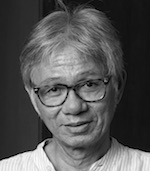 President Duterte felt annoyed at unsympathetic speculations about his disappearance from the public view for some days recently, so annoyed he could not stop himself taking a dig at even a captive target like Senator Leila de Lima.
President Duterte felt annoyed at unsympathetic speculations about his disappearance from the public view for some days recently, so annoyed he could not stop himself taking a dig at even a captive target like Senator Leila de Lima.
He said: “De Lima said I should tell the truth about where I was....She said I should not lie to the nation. De Lima is only interested to hear [about] my…death. She does not care if I live. She’s only waiting for it to be announced that Duterte is dead.”
Thrown in jail by the Duterte regime 3 months ago, on the word of apparently conscripted drug convicts that she took drug money, De Lima has been helpless as an elected official – helpless but for managing sometimes to get a statement smuggled out of her cell, such as the one that piqued Duterte now. Did he really expect De Lima to be nice at all?
In fact, I’ve observed otherwise well-practiced Christians projecting un-Christian-like thoughts about his disappearance. Some of them, inspired by the war in Marawi, have rewritten a cardinal Christian rule to make it not only more current but also more dramatic in their disavowal of it: If someone bombs your right cheek away, offer the left – or what’s left of it.
One might have expected Duterte to be simply amused at all these ill thoughts, as seems only presidential, but then it’s not easy to fathom the pathology of narcissism. And, given the depth of his affliction as set down in clinical records and also manifested in his authoritarian predisposition, Duterte would be a special case even among narcissists.

Enough evidence is betrayed in a number of instances: one, in his own admission of taking the law in his hands and of in fact taking lives by his own hand as mayor of his Davao City; two, in the thousands of dead in his brutal war on drugs; three, in the bombing of Marawi (pop. 200,000) from the air, supposedly for hosting terrorists; four, in the declaration of martial law not only for Marawi or the province in which it is contained but for all of Mindanao; and, five, in his oft-repeated threat to expand the emergency countrywide.
(Never mind his self-ranking as a triumvir with China’s Xi Jinping and Russia’s Vladimir Putin – it’s a common case of narcissistic delusion; it gets prominent play in Duterte’s case only because being president makes him a distinct narcissist.)
At any rate, as someone larger than life even by his own deluded estimation, Duterte was bound to be missed. His absence was mysterious (it still is) and conspicuous (how he obviously relishes being nationally televised as he sermonizes to all and sundry!). But more than a matter of curiosity, it was a matter of public interest – and a very serious one.
A president’s absence by incapacity, if kept secret, leaves the ship of state either unpiloted or in improper hands. Again, whether the ship sails better with an interloper than with the proper pilot is beside the point. The issue is a constitutional one: if the president becomes incapacitated the vice-president takes over. Simple, undebatable, non-negotiable.
Duterte may not have been incapacitated, but, as he says, merely confined to bed. Still, his reappearance in apparently fair capacity doesn’t make the issue irrelevant. The issue has been relevant since he admitted he was sick and under serious treatment – with, among other drugs, fentanyl, a potent opioid; he even intimated doubts about living through his term.
Duterte, however, refuses to reveal his precise state of health in a public medical report, thus inspiring all sorts of speculation. One sort compares his case with that of Ferdinand Marcos, who managed to conceal his own incapacities from illness under the cover of martial law. The comparison is inevitable – Duterte professedly idolizes both Marcos and his martial law – and so are continuous speculations about his health.
I don’t know how the denseness of his narcissism could be penetrated, but Duterte should be made to understand somehow that, if people wonder whether he is sick, or worse, it’s not personal; it’s constitutional. – Rappler.com